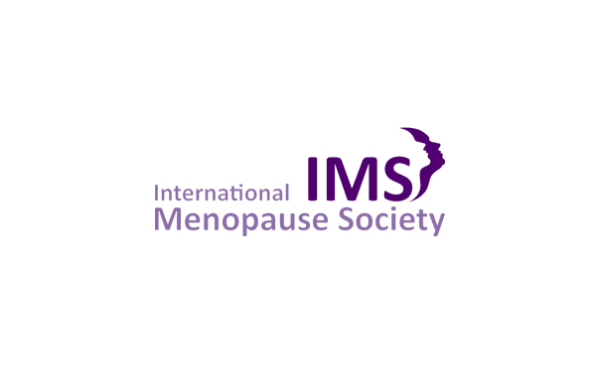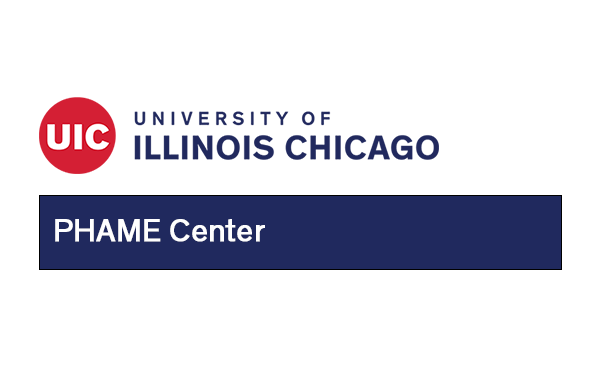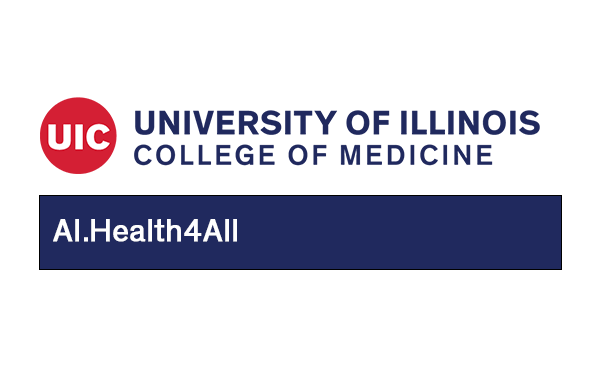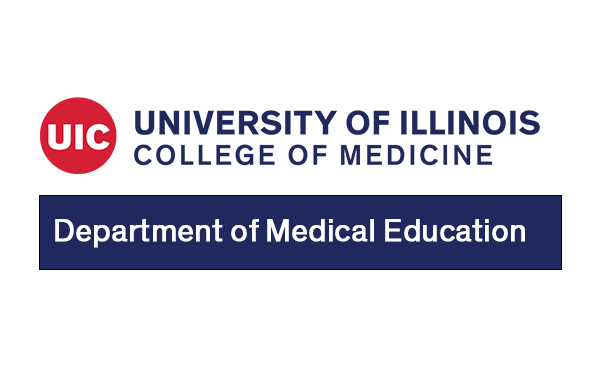Transforming Women’s Health: Expanding Menopause Care Globally
One billion women worldwide are navigating menopause, yet it remains the most neglected area of women’s health.
University of Illinois Chicago (UIC), International Menopause Society (IMS) / Council of Affiliated Menopause Societies (CAMS), and rē•spin are on a mission to transform women’s health worldwide. Together, we are expanding access to quality menopause care, evidence-based information, and digital health tools for assessing and managing menopause.
Achieving lasting impact requires a diversified, comprehensive approach—only through our synergy of expertise, innovation, and global reach can we drive the transformational change needed to improve mid-life women’s health worldwide.
About the Project
Why This Matters
Menopause isn’t just a phase to endure—it’s a critical health milestone that demands more attention.
I. Menopause is associated with serious health risks.
When a woman enters menopause, it is a pivotal opportunity to provide early screening and interventions to prevent or lessen the impact of menopause symptoms and address the risks of associated chronic diseases, including cardiovascular disease – the leading cause of death for women.
Did You Know:
- Hot flashes aren’t benign. They disrupt daily functioning and signal increased heart disease and dementia risk, affecting 80% of women and lasting an average of 7.4 years.
- Low levels of estrogen after menopause increase the risk of developing osteoporosis, making women more susceptible to fracture risk from a slip, fall, or even spontaneous breaks.
- Coronary heart disease rates are 2 to 3 times higher for women who have reached menopause versus those of the same age who have not.
- Menopause can significantly impact mental health, often leading to a heightened risk of depression. Worsening symptoms, such as insomnia, can intensify these challenges.
- Premature menopause happens to women before age 40 and early menopause happens before age 45. Early menopause is common, with around 8% of women in high-income countries and 12% of women globally experiencing menopause between the ages of 40 and 44 years. These conditions can have even greater impact on increasing risk of chronic disease and are linked to early death.
II. Menopause burden is higher in Black and Hispanic women, trauma survivors, and lower-income women.
Menopause does not affect all women in the same way. Black and Hispanic women, trauma survivors, and those with lower incomes may experience more severe and longer-lasting menopause symptoms; face additional barriers to accessing quality healthcare; and encounter systemic inequalities that exacerbate their menopausal experiences.
III. Physicians and healthcare workers lack training to address menopause care.
In the U.S., only 20% of OBGYN residency programs provide menopause training, and nearly 80% of medical residents feel barely comfortable discussing or treating menopause.
This gap in training contributes to a widespread deficiency in menopause care, leaving many women without the necessary support and treatment options to manage their symptoms effectively.
IV. Menopause can negatively impact women in the workforce and the global economy.
Menopause-related challenges result in an annual global productivity loss of $150 billion.
Untreated menopause symptoms not only hinder individuals’ work performance and productivity but also increase healthcare costs by 33%. This escalation in costs is due to the need for more frequent medical consultations and treatments as a result of unmanaged symptoms and lack of adequate care and support.
V. Critical research is lacking.
Although most age-related diseases in women are likely influenced by menopause in one way or another, the majority of biological research studies in aging fail to consider menopause. As a result, healthcare systems are not prepared to deliver on women’s integrated healthcare needs during this transitional time, leading to worse overall health outcomes.
VI. Menopause is a global issue.
Menopause is a widespread global challenge, yet many countries have minimal to no resources dedicated to menopause care and education. This lack of support is particularly concerning as the number of women experiencing menopause continues to rise. By 2030, an estimated 76% of menopausal women will reside in low- and middle-income countries, where healthcare systems often struggle with limited resources and insufficient awareness.
Our Impact

UIC, IMS, and rē•spin are committed to transforming women’s health globally by addressing menopause with a bold vision for change, including:
- Expanding the Focus for Women’s Health: By creating greater attention and awareness about menopause, a critical health transition for mid-life women, we will expand opportunities for care beyond a sole focus on fertility and maternity, to ensure coverage of a woman’s full lifespan and better overall health outcomes.
- Enhancing Menopause Care: By providing comprehensive information and increasing the availability of quality menopause care worldwide, we will empower women with the resources they need to make informed health decisions and manage their symptoms effectively.
- Improving Health and Productivity: By supporting effective management of women’s menopause symptoms, we will reduce osteoporosis, cardiovascular disease, and Alzheimer’s; shorten downtime and enhance productivity in the workplace; and decrease overall healthcare costs through better monitoring and early treatment of chronic diseases.
Our Approach
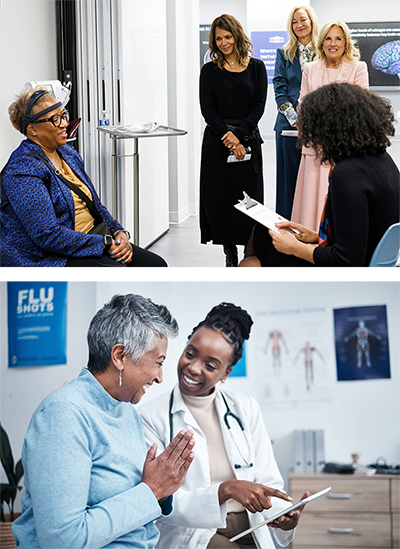
- Double the number of current providers trained via IMS’s Professional Activity for Refresher Training (IMPART) —a globally successful training on menopause—by including courses for primary care physicians, nurses, and community healthcare workers in dozens of languages, extending to many more countries where the need is greatest.
- Embed state-of-the-art menopause education into U.S. and global medical curricula, ensuring all future healthcare providers are equipped with up-to-date knowledge and treatment options for menopause care and understand the linkages to chronic disease risks, informing an integrated care approach.
- Empower women through dissemination of information and digital menopause health tools, allowing them to address symptoms, understand health risks, and make informed treatment choices.
- Through demonstration projects, deliver essential care to women via community-based menopause services in underserved rural and urban Illinois, including Southside Chicago, as well as in global sites in India, South Africa, and additional countries.
- Leverage our partnerships, growing awareness, and momentum to embed menopause care in global health policies, spurring philanthropic investments and integration within national healthcare systems.
A Leader in Innovation, Equity, and Care
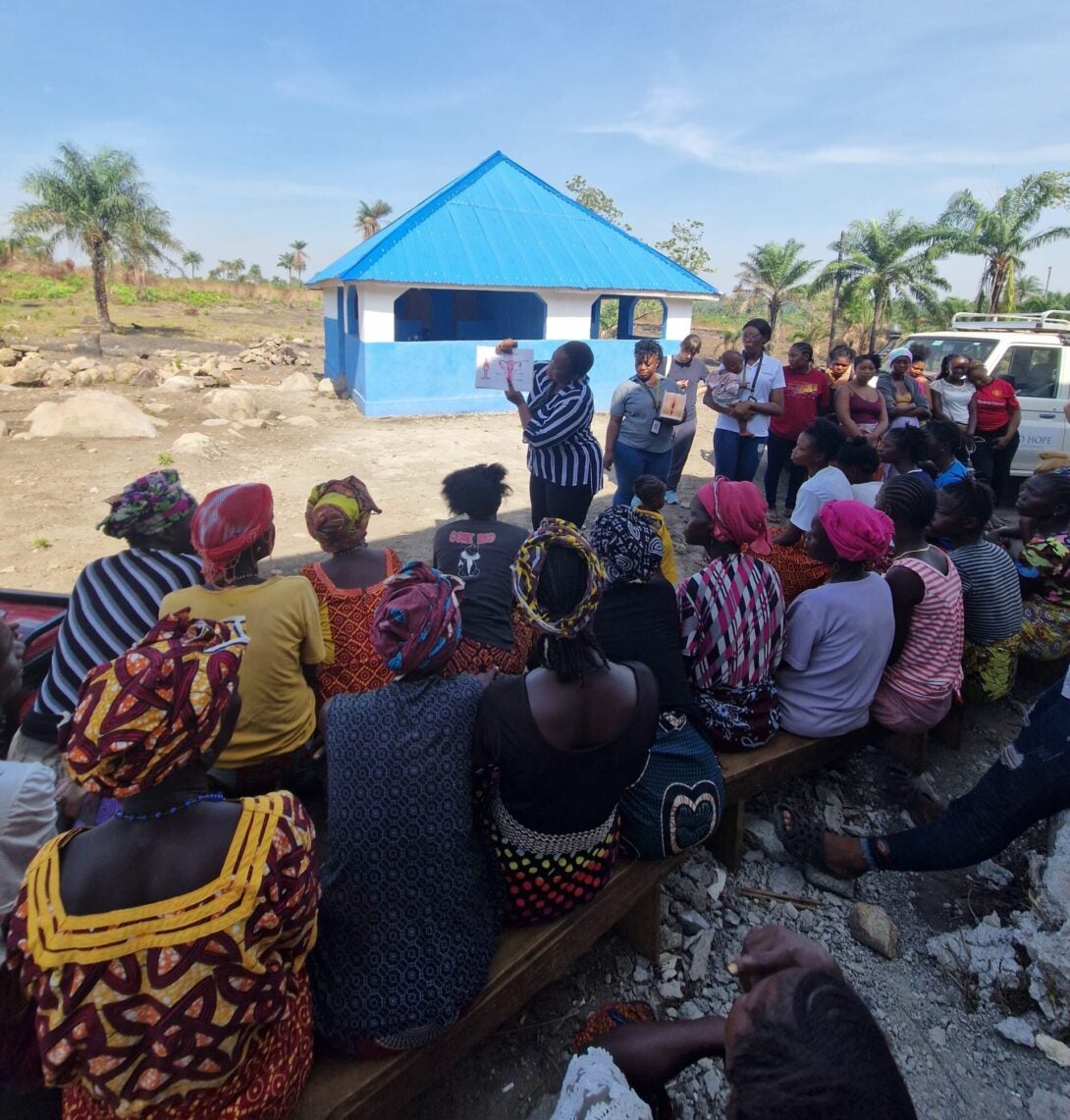
UIC stands at the forefront of innovation with a proven dedication to health equity and a track record of excellence in medical education, public health, and advanced technologies, making us uniquely equipped to take on this challenge.
Distinctive project components driven by UIC’s strengths include:
Menopause Data Visualization Portal
The Population Health Analytics, Metrics, and Evaluation (PHAME) Center at the University of Illinois Chicago (UIC) School of Public Health will play a critical role in helping to visualize the current state of menopause care globally. Based on its acclaimed Chicago Health Atlas, which helps citizens explore and compare health-related data over time and across communities, the PHAME Center will create a user-friendly, digital menopause health portal leveraging global data sources to measure indicators such as life expectancy, non-communicable diseases, menopause systems, healthcare utilization, and economic impacts. This unique public health tool will democratize global menopause data, allowing women and policymakers everywhere to see menopause impacts and trends in their area as well as changes over time during the course of our project.
What We Say/Don’t Say About Menopause
At the intersection of advanced technology and health equity, UIC’s AI.Health4All Center is pioneering AI and machine learning innovations to advance healthcare, especially for marginalized populations.
AI.Health4All will use Large Language Models and AI to collect and analyze global menopause narratives, creating multilingual resources and a regional-specific shared “language” for menopause that respects cultural contexts. From countries where women have no word for menopause, to the wide variety of ways women describe “hot flashes,” the Center will help address the need to provide women and healthcare workers with ways to communicate effectively about menopause across language, culture, and social norms.
A Leader in Innovation, Equity, and Care
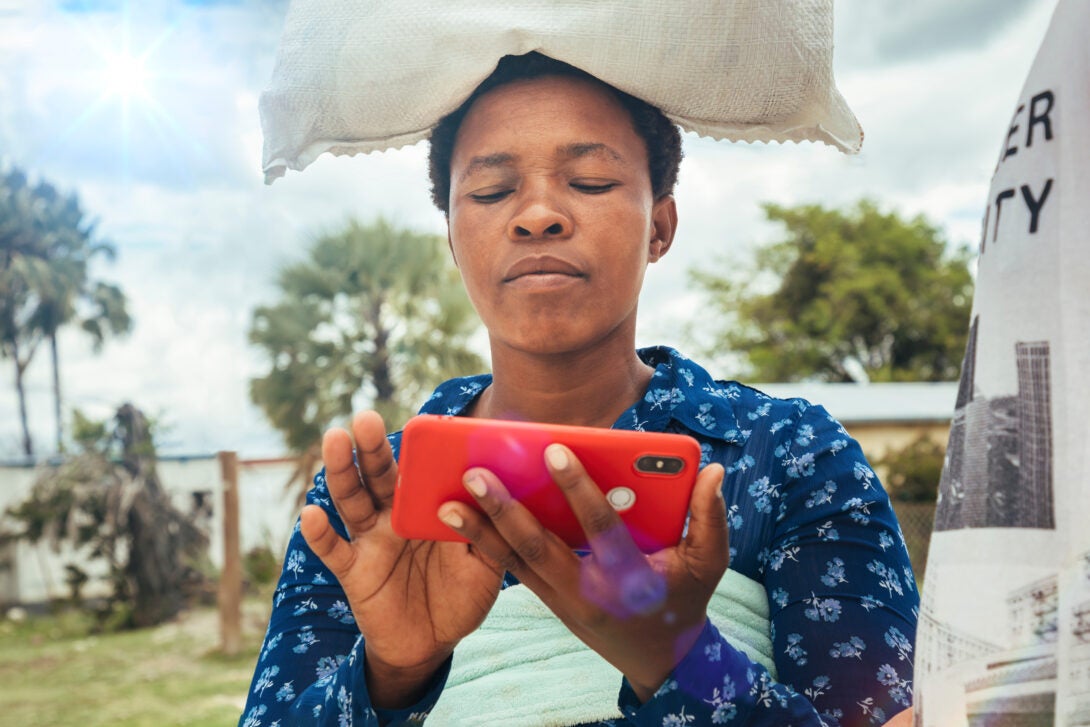
Customizable Menopause App
UIC tech experts will bundle evidence-based behavioral interventions – to help with mood, sleep disturbance, and hot flashes – into one web-based application. The menopause app will be customizable to a woman’s particular symptom concerns, language, and cultural context and it will be fully accessible to those with visual, auditory, and/or cognitive disabilities.
Innovative Menopause Curricula
The Department of Medical Education (DME) at University of Illinois College of Medicine is the oldest, continuously operating department of medical education in the world. DME pioneered the science of teaching and education for medicine and developed the first global framework for medical competency-based education.
DME will develop and launch a competency-based menopause curriculum, beginning with an elective course at UIC, and utilize advanced technology to track how well healthcare professionals retain and apply this knowledge. Enhanced retention will lead to improved patient care and outcomes. Leveraging UIC’s strong partnerships and unique data agreements with medical associations, we will integrate this curriculum into medical education both nationally and globally.
Project Partners
Achieving lasting impact requires a diversified, comprehensive approach, making our partnership essential — only through our synergy of expertise, innovation, and global reach can we drive the transformational change needed to improve mid-life women’s health worldwide.
Project Partners
misc
As a partner of the World Economic Forum’s Global Alliance for Women’s Health, we are also contributing valuable global data on menopause health indicators and collaborating to increase awareness and drive advocacy for inclusion of menopause care in policy.
Project Leads
-
Pauline Maki, PhD
Professor of Psychiatry, Psychology and OB/GYN, University of Illinois College of Medicine, UIC
Dr. Maki brings over 25 years of expertise in menopause research and care. Our Department of Medical Education is renowned for its innovative medical training programs, including the development of a pioneering medical curriculum integrating AI. The revolutionary, award-winning Chicago Health Atlas showcases our strength in health data visualization and equitable data sharing, while our AIHealth4All Center faculty have proven success in leveraging AI to advance health equity.
Watch: Dr. Maki discusses rē•spin with Halle Berry on Good Morning America
-
Rebecca Cheshire
CEO of the International Menopause Society (IMS)
With over 25 years of executive leadership in the non-profit health and social care sector, Rebecca is a driving force behind global efforts to advance women’s health. As the leader of IMS, she spearheads the development and worldwide dissemination of education on menopause and midlife women’s health. Rebecca’s expertise spans strategic planning, international program development, and government policy lobbying. Her influence has reached the highest levels, collaborating with King Charles III, UK Prime Ministers, and the Mayor of London to shape health and social care policies. She has also served as a peer reviewer for the UK Home Office.
-
Duru Shah, MD
Chair, Council of Affiliated Menopause Societies (CAMS), IMS; Director, Gynaecworld
Dr. Shah is a renowned Mumbai-based gynecologist and women’s rights activist who has dedicated her life to advancing women’s health and well-being. As Chair of CAMS at IMS, she passionately advocates for menopausal health, spotlighting the critical and often-overlooked issue of premature menopause. Her groundbreaking study in Maharashtra’s Latur District, published in Maturitas, highlights the urgent need for preventive healthcare in peri- and post-menopausal women. A relentless advocate for women’s empowerment, her impactful initiatives have gained the endorsement of the Indian Ministry of Health and have been incorporated into national health policies.
Contact Us
To learn more about 1Billion&theChange and our global impact, contact Kristie DeKoker, Associate Vice Chancellor for Advancement, at kdekoker@uic.edu.

